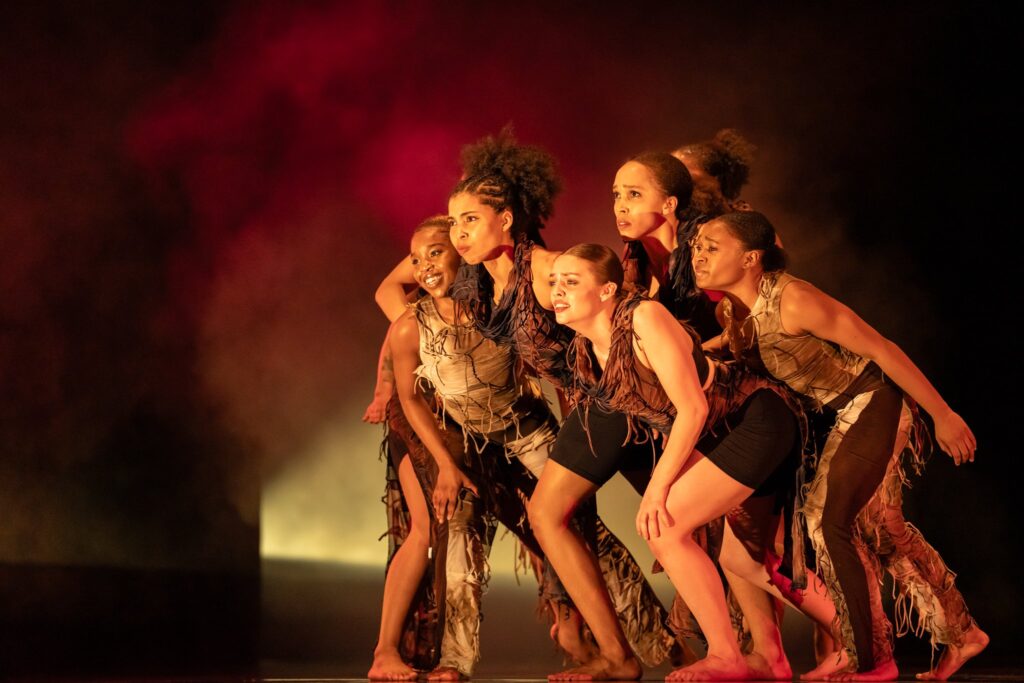Dozens of Chicago Arts Organizations Boosted by over $500,000 in Cash Reserve Grants from Donnelley Foundation
Red Clay Dance Company, Congo Square Theatre, Chicago Jazz Philharmonic and Asian Improv aRts Midwest among Chicago area recipients.
The Gaylord and Dorothy Donnelley Foundation—which supports land conservation, artistic vitality, and regional collections for the people of the Chicago metro area and the Lowcountry region of South Carolina—has announced it has expanded its commitment to Chicago’s small arts organizations by offering Cash Reserve Challenge Grants of $10,000-$25,000 to eligible arts grantees across the city, increasing the sector’s financial stability and sustainability.
The Foundation has provided $550,000 in cash reserves funding to 27 small arts organizations with budgets under $1 million who work and produce in the Chicago region since 2016. This commitment is in addition to the annual $1.7 million in general operating funds that the foundation provides to 170+ small arts organizations. In 2024, the foundation is reinvigorating its Cash Reserve Challenge Grants program on the heels of the Covid-19 pandemic and will provide an additional $120,000 to support establishing/expanding arts grantees’ cash reserves.
“Small arts organizations are cash businesses. They frequently do not have the endowments, investments or major board support of their larger counterparts—yet for most nonprofit arts organizations, the key to stability, expansion, innovation and risk is having an adequate cash reserve,” says Ellen Placey Wadey, the foundation’s program director of Chicago Arts & Collections. “We offer cash reserve grants because we know this type of financial structure is essential for the longevity of these small arts organizations, and the stability of the entire sector, so that it can weather unexpected circumstances like a pandemic. The more we support small arts organizations, the more we lift up and sustain not only the diverse neighborhoods these organizations serve, but the entire arts ecosystem in Chicago.”
The Gaylord and Dorothy Donnelley Foundation is the only of its kind in Chicago, and one of few nationwide, to fund critical cash reserves and provide its grantees with the additional benefits of no-cost financial coaching, board training and education on sustainable operations. Recent grantees of the foundation to receive grants for establishing/expanding a cash reserve fund include: Asian Improv aRts Midwest, Chicago Jazz Philharmonic, Congo Square Theatre, the International Latino Cultural Center of Chicago, Red Clay Dance Company and Sones de Mexico Ensemble.
Some grant recipients noted that the Covid-19 pandemic served as a catalyst, demonstrating the value of cash reserves to help an arts organization weather unexpected emergencies, as well as galvanizing other stakeholders and donors to deepen their longer-term commitments.
“The pandemic highlighted more than ever the need for a cash reserve to sustain our organization,” said Red Clay Dance Company’s artistic director and CEO, Vershawn Sanders-Ward. Red Clay Dance is a 2022 Cash Reserve Challenge Grant recipient. “Even post pandemic, economically things are very uncertain so building a cash reserve was vital for our organization when funding and corporate support is still in flux. Having the investment of the Donnelley Foundation in our cash reserve has been very helpful and positions us to galvanize other stakeholders around growing the cash reserve.”
“When I started my leadership tenure at Threewalls, one of my goals was to have a cash reserve for the organization. During the pandemic, it became clearer that a cash reserve was necessary and we used the time to work with the Donnelley Foundation on making it a reality,” said Threewalls’ executive director, Jeffreen M. Hayes. Threewalls is a 2021 Cash Reserve Challenge Grant recipient. “What we appreciated about the Cash Reserve Challenge Grant was the requirement to create a policy for the reserve that the board engaged in and agreed to as part of their fiduciary responsibility. The challenge grant helped us in fundraising with individual donors and foundations. It provided a way for our board members to fundraise with something quite specific and tied to the future of the organization. With the Foundation’s support, we achieved our goal of having at least four months of savings for operations, and we have increased our savings to seven months of operations! The challenge grant has in a sense operationalized saving for not only emergencies but also for experimentation. We are able to think about our future in a different way—no longer a scarcity mindset but one of abundance.”
The Gaylord and Dorothy Donnelley Foundation’s Cash Reserve Challenge Grants are provided to small arts organizations across disciplines who, among other criteria, have a history of stable finances and leadership, a sufficient budget size and organizational capacity, and a board-approved cash reserve fund plan and fundraising strategy in place to ensure the sustainability of a cash reserve. Some grantees already have small cash reserves in place, and the Foundation assists with growing their reserves and working with grantees to establish clear cash reserve policies and catalyze additional fundraising efforts.
“When this opportunity arose, we had a modest cash reserve in place,” said Matt Greenberg, executive director of Chicago a cappella, a 2016 Cash Reserve Challenge Grant recipient. “However, this Cash Reserve Challenge Grant served as a catalyst, increasing the reserve by 60 percent. Equally significant was its role in prompting the establishment of a comprehensive policy governing the reserve’s definition, utilization, objectives, and guidelines for approval and replenishment. To date, we have not tapped into the cash reserve, but the improvement in our balance sheet significantly fortified confidence in our organization, both among our team and external stakeholders. It has also empowered us to approach planning with greater assurance, knowing that we have a safeguard against potential setbacks resulting from new initiatives or programs.”For more information, visit gddf.org.




